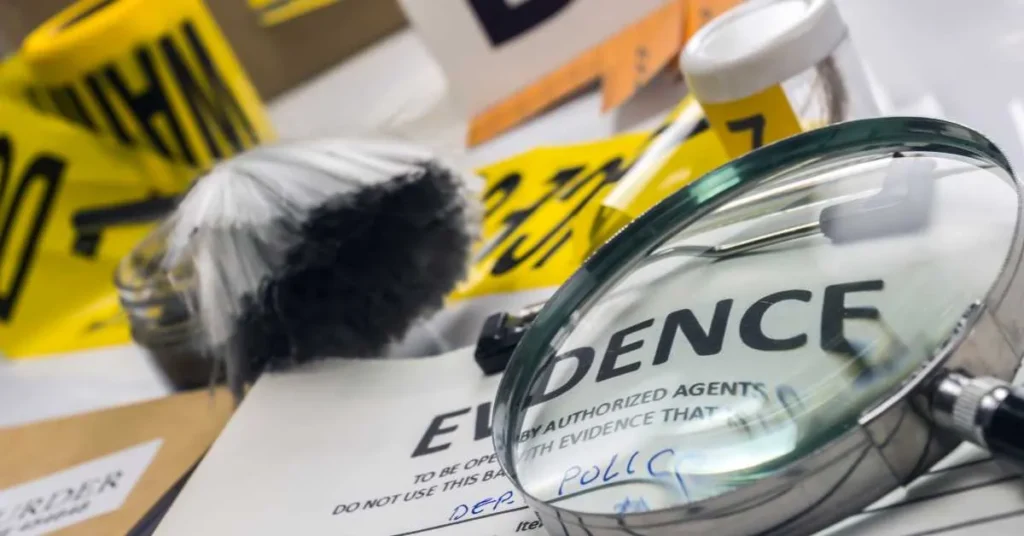🧬 How Is Forensic Evidence Utilized in Florida Criminal Trials?
One of the most common questions I get during consultations is:
“Will the State use forensic evidence against me?”
The short answer is: yes—if they can. Forensic evidence plays a major role in Florida criminal trials, especially when the State is trying to prove who committed the crime.
🔍 Common Types of Forensic Evidence in Florida Cases
In criminal courtrooms across Florida, forensic evidence is used to establish:
- The identity of the alleged perpetrator
- The presence of a suspect at a crime scene
- The cause and timing of injuries or death
- The chain of events leading to the alleged offense
Examples include:
- DNA analysis (e.g., blood, saliva, or hair samples)
- Fingerprints found on weapons, door handles, or stolen items
- Ballistics reports from firearms
- Toxicology results in drug-related cases
- Cell phone or GPS data for digital tracking
⚖️ Forensics and Identity: The State’s Go-To Tool
When identity is in dispute, the State will often lean heavily on DNA and fingerprint evidence. This is especially common in cases involving:
- Burglary or theft
- Assault or homicide
- Drug trafficking or possession with intent
- Sexual battery or other violent felonies
The State will call on forensic experts to testify about lab results, explain testing methods, and link evidence directly to the defendant.
📌 Related: 👉 How a Criminal Lawyer Challenges Evidence in Florida
🛡️ Can Forensic Evidence Be Challenged?
Absolutely. A skilled criminal defense attorney will examine:
- How the evidence was collected and stored
- Whether the lab followed proper testing procedures
- Potential cross-contamination or mislabeling
- Whether the analysis actually proves what the prosecution claims
In some cases, your attorney may bring in a defense expert to counter the State’s conclusions—or file a motion to suppress improperly handled evidence.
📌 Related: 👉 Motion to Suppress in Florida Criminal Cases
📞 Facing Charges Based on Forensic Evidence? Call Us Today
Forensic evidence may sound airtight, but it isn’t always accurate—and it’s certainly not immune to legal challenge.
At Michael White, P.A., we represent clients throughout Fort Lauderdale and South Florida, helping them understand and contest the evidence used against them—including DNA, fingerprints, and other forensic tools.
📲 Call (954) 270-0769 or schedule your free consultation online to review your case today.
💬 Frequently Asked Questions: Forensic Evidence in Florida Criminal Trials
Q1: What is forensic evidence in a criminal case?
A: Forensic evidence includes scientific analysis of physical or digital materials—like DNA, fingerprints, ballistics, toxicology, or cell phone data—used to support or challenge criminal charges.
Q2: How does the State use forensic evidence in Florida criminal trials?
A: Prosecutors often use forensic evidence to establish identity, location, or intent. This can link a suspect to a crime scene, victim, or item involved in the alleged offense.
Q3: Can forensic evidence be challenged in court?
A: Yes. A defense attorney can question the collection, storage, testing procedures, and interpretation of forensic evidence—or present an expert witness to offer a competing opinion.
Q4: What are common types of forensic evidence used in Florida?
A: DNA, fingerprints, ballistics reports, drug tests, toxicology screens, and digital tracking (e.g., GPS, cell towers) are among the most commonly used forensic tools.
Q5: Can a case be dismissed based on bad forensic evidence?
A: Potentially. If forensic evidence is found to be unreliable, contaminated, or improperly obtained, it may be suppressed—significantly weakening the prosecution’s case and possibly leading to dismissal.




